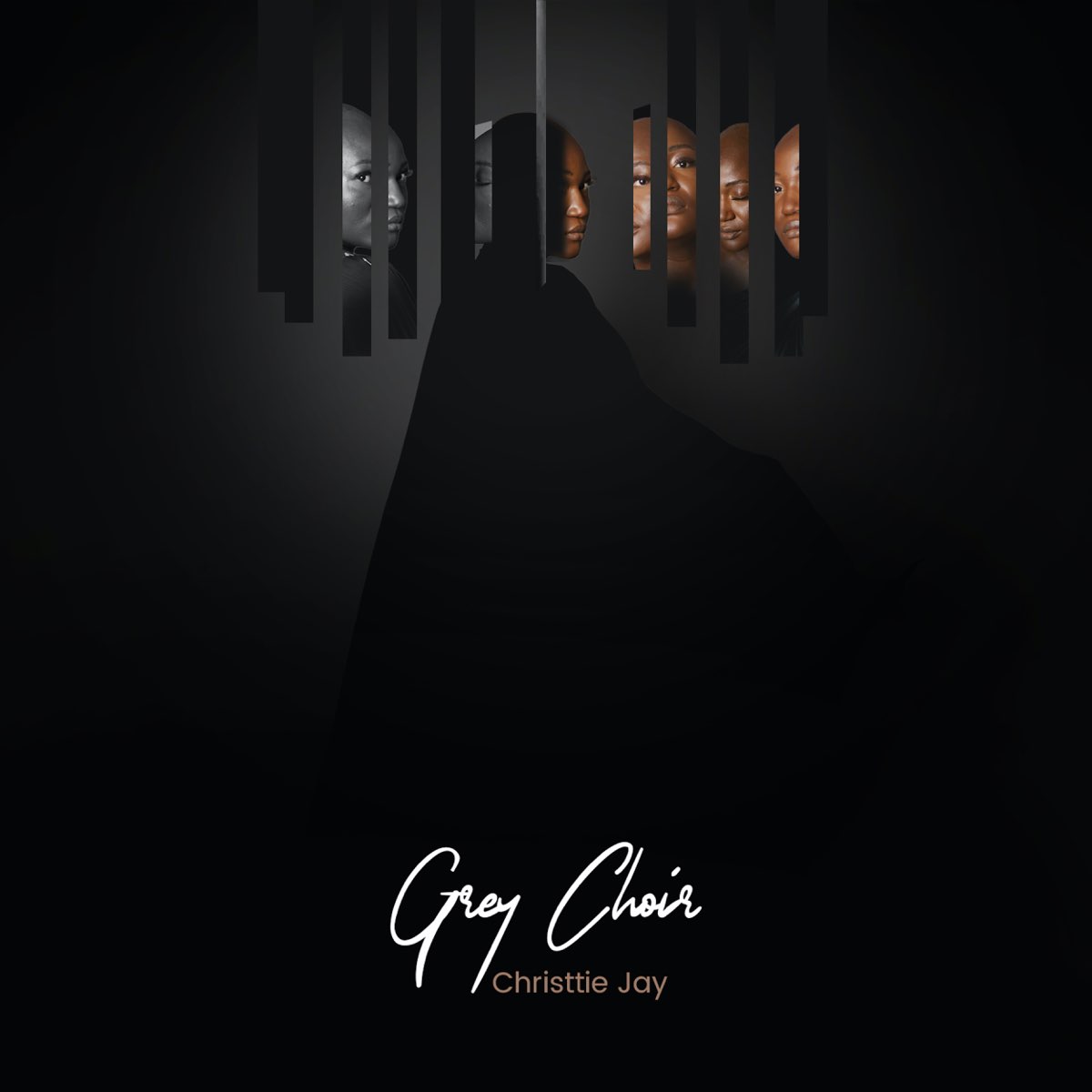Whether you have recently immersed yourself in the mesmerizing poetry scene on the continent or simply have a deep appreciation for performance poetry, chances are high that you have come across the name Christtie Jay- a remarkable poet whose works are notorious for their beguiling simplicity, swirl of metaphors, and radiant excavation. With her enchanting verses, lines and magnetic stage presence, Christtie’s brilliance always stays on long after the last word is spoken and read. In this review, I briefly delve into the poetic brilliance of Christtie Jay on her album “Grey Choir”, exploring the depth of her themes and the lyrical elegance of her language.
The Album
Grey Choir’s enchanting overture begins with “Promises,” a slow waltz that sets the mood and tugs at the heartstrings with its sensual undertones and soulful moans. Like a delicate dance, the lyrics promises and deliver an exploration of erotic passion, where two lovers entwine in pleasure, discovering the vastness of each other’s bodies. Christtie’s evocative language:
till your neighbours catch your notes….
till your hips go jogging…
till skid marks on skin…
skillfully captures the intensity of desire, reaching a breathtaking climax that leaves us yearning for more.

The second track, “Teething,” showcases Mary Anthony’s powerful vocals, guiding us through a personal and familial journey. In “Teething”, poetry and music mash, as love’s wounds fester,
unrequited, pointing out many of us connection to heartache and insistence on standing in the way of love. The poem:
you would think
that…. we’d know better
Than to stand in love’s way
try to forestall
it’s knocking on our door
but no
because of course
without thinking,
when we are fat with grief
we set fire to our house……
Returning to her roots on the third track, “Tayad,” Christtie masterfully weaves Yoruba language into the narrative, infusing the piece with cultural richness and historical depth. The speaker expresses frustration with complacent hope:
to ba ma itan e,
ekun o le tan lakata e
Striking a powerful chord, and reminding that reminds that sometimes it is hope that fuels tyranny; it is the hope that does nothing when leaders maltreat citizens. It is hope that kills.
“Tayad” is a thought-provoking masterpiece that compels us to reflect on the collective weight of our complacency and hope. Sadly, the tragedy doesn’t end even at the end of the poem as the ending lines:
any country out there
seeking black bodies
to fill caskets,
because death assured is better
than death hiding
cuts deeply, even after the final notes disappear.
A break to set the conversation straight
If you are feeling woozy at this point, the interlude helps you put things into perspective. In the middle of a conversation, four women discuss their take on being called ‘strong black woman’. “The word is not praise,” one says. “It is a scam,” another voice quickly adds. What appears to be the lead vocal voice enthused, “Our embrace of that word is the embrace of our own oppression,” to which the others snap their fingers and shout “preach”.
The interlude is fire; a much needed break to break from the heaviness of “Tayad” and a powerful
moment of reflection on the complexities of identity and societal expectations.

The fifth poem/track “To My Sisters” is a compilation of 20 lessons by a black girl as a listicle. It’s cut from the fabric of what you would hear from Ace voices like Titilope Sonuga. There are pretty good bits of advice: “do not fold your breath, there is no reward for the strength they want you to wear. No thank yous or well dones for staying faithful to collecting grief….” there is also “yeses will not make you
a good person, nor will it make them stay”
“Story Story” is the sixth track on the album and one of the most distinctive with its upbeat yet conscious melody, reminiscent of the Afrobeats sound. Following this, you have “Hello Goodbye” which opens with a heart-wrenching phone conversation — a tireless, sobbing monologue. It is death and love again, the poem beginning with “My love, you are dead…..” has the tireless aching of someone looking for answers but finding none. Also, the undercurrent of this track is a lonesome dirge on the keyboard, encapsulating the solitude and despair. The artist’s voice is a resolute attempt to reconnect with the departed, to grasp the intangible, but the center refuses to hold.
Finally, ending the album is Bad Days, which you won’t be wrong to describe as a motivational piece. I particularly like Bad Days because finding someone who balances optimism with realism is somewhat refreshing in a world obsessed with a toxic form of positivity. Also, the lines are jarring, real, and experiential-
…..when your skin is a cloth you are itching to pull off,
your legs a mountain that refuses to move…
This is Grey Choir. Robust in what it gives attention to and fearlessly exploring a spectrum of emotions and experiences. The album, a masterpiece of militant yet delicate artistry, is a savory feast that captivates and lingers on the senses, leaving us spellbound in its wake.
Bio
Adeola Juwon is a Nigerian writer and poet living in the UK. He is a widely published writer with his works appearing on journals and magazines like The Lagos Review, African Writer, Lion & Lilac and other places. He is the author of the poetry collections: Ellipsis and Songs for Ori, both collection of poems.

